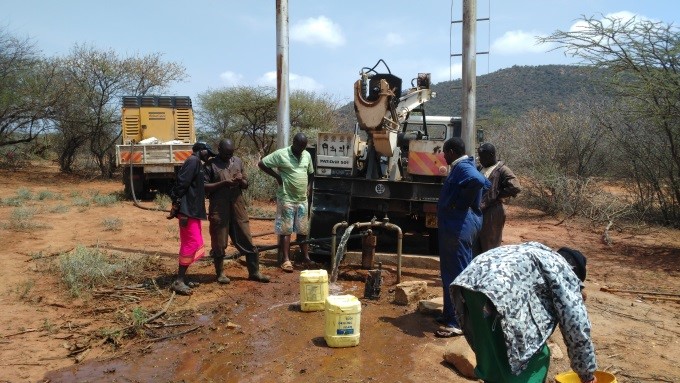The Southern Region Water Board (SRWB) has called on residents of Group Village Head (GVH) Onga and GVH Kambalame in Chiradzulu District to take ownership of and protect water infrastructure installed in their areas. This follows growing concerns over theft and vandalism, which have resulted in significant financial losses and disruptions to water supply.
Speaking during a community meeting held in GVH Onga on Monday, SRWB Security Executive Ephrone Mphande expressed deep concern over the recurring acts of theft and destruction targeting vital water installations. He revealed that the board had lost an estimated K120 million in replacing two stolen transformers from the area alone.
“These are not business operations—we are here to serve the community by providing access to clean and safe drinking water,” said Mphande. “When infrastructure is vandalised, it is the people who suffer most.”
The meeting, organised by SRWB in collaboration with the Chiradzulu District Council, was aimed at fostering community engagement and building stronger partnerships between residents, local leaders, and authorities.
Local authorities have been alarmed by the rise in vandalism, with the Chiradzulu Police Station indicating that many of the suspects involved in recent thefts come from neighbouring Blantyre. Police officer Lloyd Chalemera assured residents that measures were being put in place to tackle the issue more effectively.
“We are working with community policing groups to improve surveillance and response,” Chalemera said. “Community members must remain vigilant and report any suspicious activities.”
Group Village Head Kambalame raised concerns about security arrangements at the sites, highlighting the need for better protection for guards.
“Security guards need a proper guardroom where they can operate in shifts. Right now, some are demotivated due to delayed payments and fear for their safety,” the village head noted.
The suggestion for more structured and adequately supported security personnel was well received by the authorities present.
McPherson Kuseli, a water department officer from Chiradzulu District Council, acknowledged the recommendations made by the community, stating that the council would look into them seriously.
He added that the success of such public service infrastructure depends heavily on collaboration between government institutions and the communities they serve.
“Protecting these installations is a shared responsibility,” Kuseli said. “If we lose them, we all lose access to water.”
Water infrastructure vandalism remains a growing challenge in Malawi, especially in rural and peri-urban areas. Incidents involving the theft of transformers, pipes, and solar panels have become increasingly common, threatening the sustainability of water projects funded by both government and development partners.
Community members at the meeting pledged to work closely with local security structures, form neighbourhood watch groups, and educate others about the importance of protecting water systems.
Several people also voiced frustrations over past instances where reports to authorities went unaddressed. They called for a quicker response and better coordination between SRWB, the police, and the district council going forward.
As part of its long-term plan, SRWB says it is reviewing its security protocols and contractor obligations to ensure water infrastructure is better protected from criminal activity.
The agency has also launched awareness campaigns to promote the value of water and the dangers of tampering with infrastructure.
With a clear call for community-led protection and cooperation, SRWB hopes to reduce incidents of vandalism and secure water supply systems for the benefit of all Malawians in Chiradzulu and beyond.
